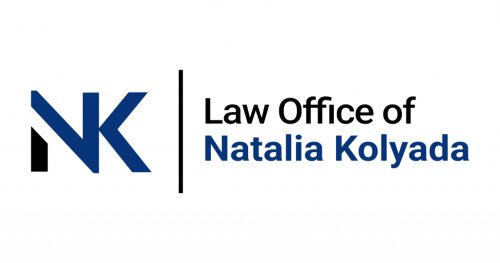Best Domestic Violence Lawyers in Georgia
Share your needs with us, get contacted by law firms.
Free. Takes 2 min.
Free Guide to Hiring a Family Lawyer
Or refine your search by selecting a city:
List of the best lawyers in Georgia, United States
About Domestic Violence Law in Georgia, United States
Domestic violence is a serious concern in Georgia, affecting individuals and families across the state. Georgia law recognizes domestic violence as a range of abusive behaviors that can include physical harm, threats, intimidation, stalking, harassment, and emotional abuse between individuals who have a family, household, or intimate relationship. This includes current or former spouses, parents of the same child, parents and children, stepparents and stepchildren, foster parents and foster children, or other persons living or formerly living in the same household. The primary goal of Georgia’s domestic violence laws is to provide protection and legal recourse for victims, as well as clear consequences for perpetrators.
Why You May Need a Lawyer
Dealing with domestic violence can be physically, emotionally, and legally challenging. Individuals may need a lawyer for several reasons related to domestic violence, including:
- Obtaining a temporary or permanent protective order (restraining order) against an abuser
- Defending themselves if falsely accused of domestic violence
- Navigating child custody, visitation rights, or divorce proceedings involving allegations of abuse
- Ensuring safety and legal protection for children or other family members
- Understanding their rights and responsibilities under Georgia law
- Seeking to press criminal charges or report abuse to law enforcement
- Pursuing compensation or assistance, such as relocation support
An attorney can provide guidance, ensure your voice is heard in court, and help you understand the legal options available.
Local Laws Overview
Georgia state law addresses domestic violence through several statutes and procedures designed for both civil and criminal cases.
- The Georgia Family Violence Act covers acts of family violence, including battery, assault, stalking, criminal damage to property, unlawful restraint, and criminal trespass between certain people living in the same household or sharing certain family or intimate relationships.
- Protective Orders, commonly called Family Violence Protective Orders, are available to victims who need protection. These can be granted on an emergency (ex parte) basis or after a court hearing for a longer duration (usually up to 12 months, but extensions are possible).
- Law enforcement officers in Georgia have the authority to arrest an alleged abuser without a warrant when probable cause exists to believe that family violence has occurred.
- Violations of protective orders can result in criminal charges, including contempt of court or additional penalties associated with the original domestic violence incident.
- In civil cases such as divorces or custody disputes, evidence of domestic violence can significantly impact the court’s decisions regarding child custody, visitation, and property division.
- Georgia offers confidentiality protections and victim services through various agencies.
Frequently Asked Questions
What behaviors are considered domestic violence under Georgia law?
Domestic violence in Georgia includes physical harm, bodily injury, assault, stalking, criminal damage to property, unlawful restraint, and criminal trespass when committed by a family or household member against another.
Who can file for a Family Violence Protective Order in Georgia?
Anyone who is the victim of family violence by a current or former spouse, parent, child, stepparent, stepchild, foster parent, foster child, or someone who lives or has lived in the same household can file for a protective order.
How quickly can I get a protective order in Georgia?
Courts can issue an ex parte protective order very quickly, often the same day the application is filed, if the judge believes there is an immediate threat. A full court hearing is scheduled within 30 days for a longer-term order.
What happens if someone violates a protective order?
Violating a protective order in Georgia can result in arrest, criminal charges, and possible jail time or fines. It can also constitute contempt of court.
Can I get custody of my children if I am a victim of domestic violence?
Yes, Georgia courts consider evidence of domestic violence when deciding custody and visitation. Courts prioritize the safety and wellbeing of children and may limit or supervise the abuser’s visitation rights.
What should I do if I am accused of domestic violence and believe the accusation is false?
Seek legal representation immediately. Presenting evidence and witnesses, as well as following all legal requirements, can help protect your rights in court.
Is emotional or psychological abuse recognized under domestic violence laws in Georgia?
While Georgia’s statutes primarily focus on physical acts, certain types of psychological or emotional abuse, such as stalking or harassment, are covered and can be grounds for protective orders.
Can I drop charges after reporting domestic violence to the police?
While victims may request to drop charges, the final decision is up to the prosecutor, not the victim, especially in criminal cases. Prosecutors may continue cases based on the evidence, even without the victim’s cooperation.
Do I need a lawyer to obtain a protective order?
You are not legally required to have a lawyer to obtain a protective order, but legal assistance can help ensure your petition is properly presented and supported by evidence, increasing the likelihood of success.
What support services are available to domestic violence victims in Georgia?
Victims can access emergency shelters, counseling, legal assistance, victim advocates, and other resources through local domestic violence organizations and government agencies.
Additional Resources
If you or someone you know needs help with domestic violence in Georgia, these organizations and agencies provide support, information, and legal resources:
- Georgia Domestic Violence Hotline - Provides 24-7 crisis support and resource referrals
- Georgia Legal Services Program - Offers civil legal assistance to eligible individuals
- Georgia Coalition Against Domestic Violence - Statewide organization offering advocacy and shelter information
- State and local law enforcement agencies - Can facilitate emergency intervention and protective orders
- Department of Family and Children Services - Provides support, especially where child welfare is at risk
- District Attorney’s Victim Witness Assistance Programs - Help guide crime victims through the legal process
Next Steps
If you are facing domestic violence or have been accused of it, consider taking the following actions:
- Contact a trusted attorney for a consultation and legal advice unique to your situation.
- If in immediate danger, call 911 or your local law enforcement agency for emergency assistance.
- Gather critical documents and evidence, such as photographs, messages, and witness information.
- Reach out to a local domestic violence shelter or organization for support and safety planning.
- Attend any scheduled court hearings and comply with all legal requirements, including the terms of protective orders.
- Educate yourself on your rights and options under Georgia law, using resources listed above or by consulting with a qualified attorney.
Remember, you do not have to navigate the complexities of domestic violence law alone. Legal professionals, advocates, and support services are available to help you protect your safety, rights, and interests.
Lawzana helps you find the best lawyers and law firms in Georgia through a curated and pre-screened list of qualified legal professionals. Our platform offers rankings and detailed profiles of attorneys and law firms, allowing you to compare based on practice areas, including Domestic Violence, experience, and client feedback.
Each profile includes a description of the firm's areas of practice, client reviews, team members and partners, year of establishment, spoken languages, office locations, contact information, social media presence, and any published articles or resources. Most firms on our platform speak English and are experienced in both local and international legal matters.
Get a quote from top-rated law firms in Georgia, United States — quickly, securely, and without unnecessary hassle.
Disclaimer:
The information provided on this page is for general informational purposes only and does not constitute legal advice. While we strive to ensure the accuracy and relevance of the content, legal information may change over time, and interpretations of the law can vary. You should always consult with a qualified legal professional for advice specific to your situation.
We disclaim all liability for actions taken or not taken based on the content of this page. If you believe any information is incorrect or outdated, please contact us, and we will review and update it where appropriate.
Browse domestic violence law firms by city in Georgia
Refine your search by selecting a city.













